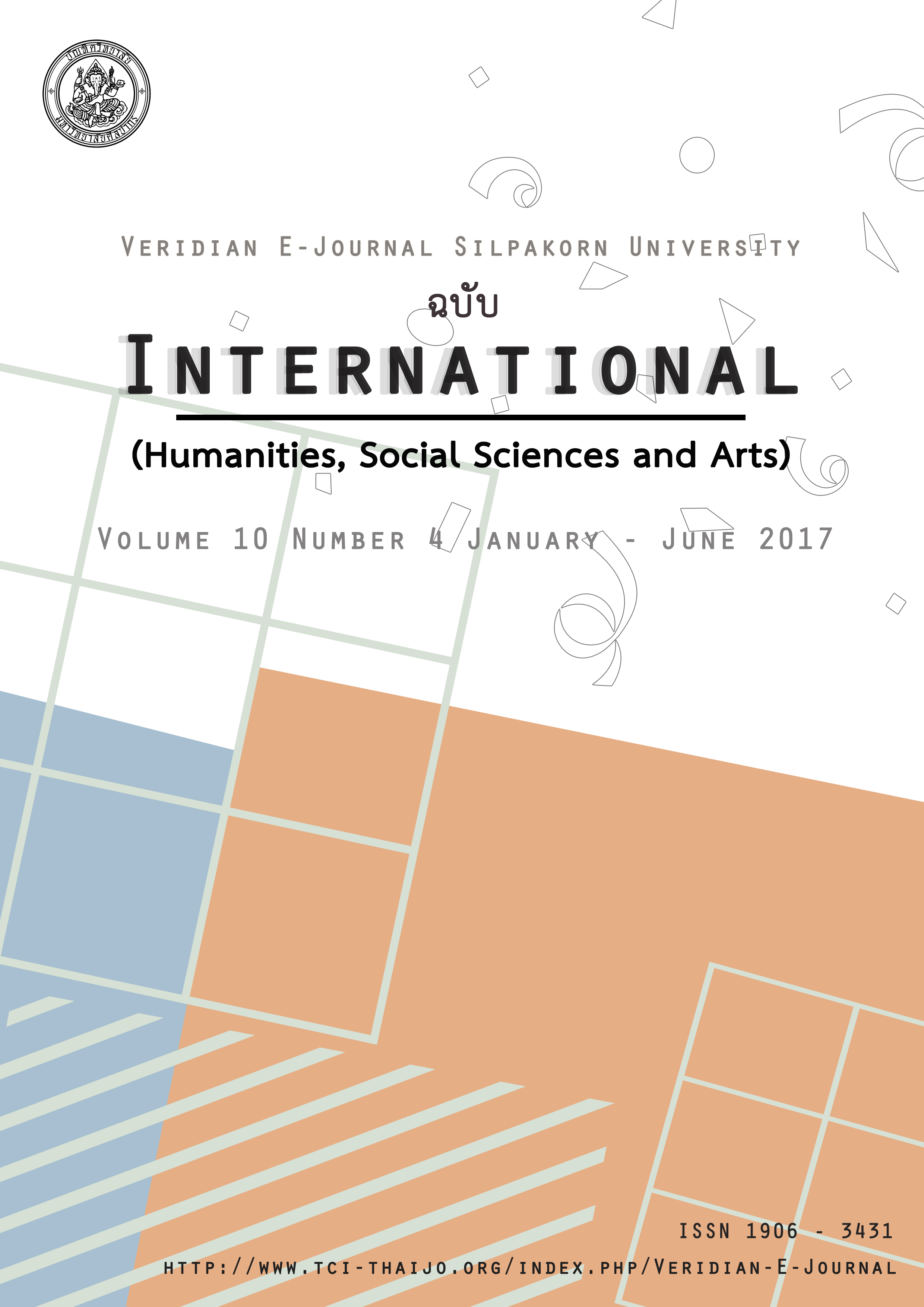Considering Parliament under Siege : Some Thoughts Concerning on Coercive Power and Power Relations of the Legislative Branch in Thai Politics
Main Article Content
บทคัดย่อ
The institutional approach to study of parliamentary issues tends to emphasize the internal roles and mechanisms, whereas behavioral approach has focused on pattern of political acts. However, the purpose of this article is to examine the National Assembly of Thailand through elitist theories. As an elitist institution, it has to obtain the some kind of political virtues. In reality it was found that the parliament is restrained by political society (both undemocratic and democratic elements) so intense those socio-political perspectives on the parliament are almost always associated with negative viewpoint. That perception has certified by institutionalize the limited parliamentary powers system. Therefore, parliament has never performed its full potential. For all these reasons, the article is thus considering rationalized parliament after 1997 political reform that confront with many political turmoil. Consequently, such situation led the parliament of 2007 constitution to be under siege and controlled by other sectors of political society. On the one hand, there perfectly demonstrates the limited powers of legislative body. And the other, there has pointed out the internal constraints of current parliamentary system. Thus, the contemporary parliamentary politics cannot be overcome the legitimacy crisis of its own.
การศึกษารัฐสภาแนวสถาบันการเมืองมักให้ความสำคัญกับบทบาทและกลไกการทำงานภายใน ขณะที่แนวพฤติกรรมศาสตร์กลับเน้นไปที่แบบแผนการกระทำทางการเมือง อย่างไรก็ตาม บทความนี้มุ่งศึกษารัฐสภาบนฐานคิดทฤษฎีแบบชนชั้นนำ เมื่อเป็นสถาบันของชนชั้นนำก็จำเป็นต้องมีคุณลักษณะที่ดีบางอย่างที่จะต้องบรรลุถึง หากแต่ในความเป็นจริง รัฐสภากลับถูกแรงเสียดทานจากสังคมการเมือง (ทั้งที่เป็นและไม่เป็นประชาธิปไตย) จนกระทั่งมุมมองทางสังคมการเมืองที่มีต่อรัฐสภาล้วนเต็มไปด้วยทัศนะเชิงลบ ซึ่งรองรับความคิดดังกล่าวผ่านการทำให้เป็นสถาบันด้วยการสร้างข้อจำกัดต่ออำนาจของรัฐสภา ดังนั้น รัฐสภาจึงไม่สามารถแสดงศักยภาพอันแท้จริงของตนเองได้ ด้วยเหตุนี้ บทความจึงเพ่งพินิจไปที่การปฏิรูปการเมือง พ.ศ. 2540 ที่ทำให้รัฐสภามีความเป็นเหตุเป็นผล และต้องประสบกับปัญหาบางประการ ยิ่งไปกว่านั้น ผลสืบเนื่องจากปรากฏการณ์ดังกล่าวก็ทำให้รัฐสภาตามรัฐธรรมนูญ พ.ศ. 2550 ตกอยู่ภายใต้การตรวจสอบควบคุม และถูกล้อมตีจากภาคส่วนอื่นๆ ในสังคมการเมือง ในด้านหนึ่งจึงแสดงให้เห็นขอบเขตอำนาจอันจำกัดขององค์กรนิติบัญญัติ และในอีกทางหนึ่งก็เป็นการชี้ให้เห็นข้อจำกัดของระบบรัฐสภาเอง ดังนั้น การเมืองแบบรัฐสภาจึงไม่สามารถก้าวข้ามวิกฤตการณ์ความชอบธรรมของตนเองได้

